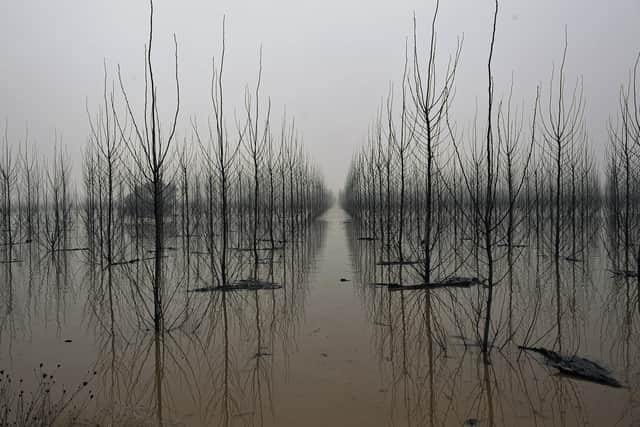Climate change:P Let's not forget about saving the planet amid global doom and gloom
The talks took place shortly after the release of an international report on the state of the environment that was described as a “code red for humanity”.
Negotiations concluded with nearly 200 countries pledging to slash greenhouse gas emissions, “phase down” use of coal and work together to limit global temperature rise to no more than 1.5C above pre-industrial levels by the end of this century.
Advertisement
Hide AdAdvertisement
Hide AdBut a lot has been happening since November, giving us almost too much else to worry about.


On top of continuing pressures of the Covid-19 pandemic, we’ve been dealing with dramatically escalating living costs, dangerous weather and uncertainty over energy supplies.
And now Russia has invaded Ukraine, bringing bloodshed and destruction to the region and raising fears of a new world war.
With all this going on, it’s hardly surprising if it seems like the issue of climate change can be put on the back burner.
But the need for action has never been more critical – or urgent.
The latest report from the UN’s Intergovernmental Panel on Climate Change (IPCC), released yesterday, sets out a dire list of consequences for people and the planet and warns some impacts are already “irreversible”.
It lists a shocking combination of losses and damages to human societies and nature as the world warms, including killing people, damaging food production, destroying wildlife and reducing economic growth.
It says some of the worst effects will occur sooner, at a lower level of warming, than previously thought.
And there is nowhere and nobody on earth that will escape entirely unscathed.
Advertisement
Hide AdAdvertisement
Hide AdBut the authors of the report believe there is still a chance to guard against the worst events, with a very narrow window left to act.
IPCC co-chair Professor Debra Roberts said: “Our report clearly indicates that places where people live and work may cease to exist, that ecosystems and species that we've all grown up with and that are central to our cultures and inform our languages may disappear.
“So this is really a key moment.
“Our report points out very clearly. This is the decade of action if we are going to turn things around.”
A message from the Editor:
Thank you for reading this article. We’re more reliant on your support than ever as the shift in consumer habits brought about by coronavirus impacts our advertisers.
If you haven’t already, please consider supporting our trusted, fact-checked journalism by taking out a digital subscription.
Comments
Want to join the conversation? Please or to comment on this article.
